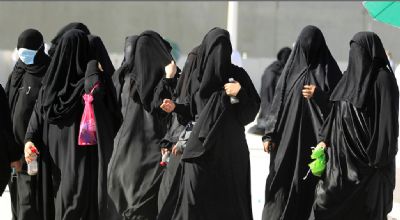Editor's Note: Saudi Arabia was elected to the Human Rights Council with 152 votes from the 193 UN member states eligible to vote.
On October 28, 2016, the United Nations will be holding elections for the UN Human Rights Council (UNHRC). According to the UN General Assembly resolution that created the Council (A/RES/60/251, adopted March 15, 2006): "when electing members of the Council, Member States shall take into account the contribution of candidates to the promotion and protection of human rights and their voluntary pledges and commitments made thereto." To that end, countries seeking membership sometimes submit "pledges" prior to elections.
Among those seeking a spot on the UNHRC is Saudi Arabia. In its pledge, Saudi Arabia made such statements as:
"1. The principles on which Saudi Arabia is founded are derived from the Islamic sharia, under which it is an obligation to protect human rights and to cooperate in the protection and promotion thereof. In view of that obligation, Saudi Arabia offers itself as a candidate for membership of the Human Rights Council for the period 2017-2019. Its candidacy is also based on its belief in the important role the Council plays in improving the situation of human rights in the world and in keeping with its responsibility to contribute to strengthening and enhancing the Council's performance, so that it can carry out its work without selectivity or politicization. It should be noted that Saudi Arabia has thrice served as a member of Council since its establishment in 2006 and served as an observer State in 2013. Saudi Arabia has made every effort to ensure the success of the Council's work, comply with its resolutions, cooperate with its mechanisms and contribute to enhancing its performance.
2. The commitment of Saudi Arabia to promote and protect human rights at the national and international levels is an embodiment of the commitment to the constitutional principles on which governance in the country is based. The Basic Law of Governance, article 8, provides that government in Saudi Arabia shall be based on justice, consultation and equality, in accordance with the Islamic sharia. In addition, article 26 provides that the State must protect human rights, in accordance with the Islamic sharia. The Basic Law of Governance also includes other principles and provisions aimed at promoting and protecting human rights. Moreover, the commitment of Saudi Arabia to protecting human rights fulfils its undertakings pursuant to the human rights instruments to which it is a party. By promoting human-centred sustainable development efforts, the country continues to make progress in promoting and protecting human rights. That progress is further demonstrated by the strengthening of the legal and institutional framework of human rights, including through the enactment and development of human rights laws, the establishment of institutions for the protection and promotion of human rights, and the creation of effective means and mechanisms for redress, as well as other legislative and executive measures."
Actually, Saudi Arabia's human rights record looks somewhat different. In the words of the U.S. State Department's most recent annual report on human rights (released April 2016):
"The most important human rights problems reported included citizens' lack of the ability and legal means to choose their government; restrictions on universal rights, such as freedom of expression, including on the internet, and the freedoms of assembly, association, movement, and religion; and pervasive gender discrimination and lack of equal rights that affected all aspects of women's lives.
Other human rights problems reported included: a lack of equal rights for children and noncitizen workers; abuses of detainees; overcrowding in prisons and detention centers; a lack of judicial independence and transparency that manifested itself in denial of due process and arbitrary arrest and detention; investigating, detaining, prosecuting, and sentencing lawyers, human rights activists, and antigovernment reformists; holding political prisoners; and arbitrary interference with privacy, home, and correspondence. Violence against women; trafficking in persons; and discrimination based on gender, religion, sect, race, and ethnicity, as well as a lack of equal rights for children and noncitizen workers were common. Lack of governmental transparency and access made it difficult to assess the magnitude of many reported human rights problems...
The law and the guardianship system restrict women to the status of legal dependents vis-a-vis their male guardians. This status is unchanged, even after women reach adulthood. Women and some men faced widespread and state-enforced segregation based on societal, cultural, and religious traditions...
The law does not recognize spousal rape as a crime. The government enforced the law based on its interpretation of sharia, and courts often punished victims as well as perpetrators for illegal 'mixing of genders,' even when there was no conviction for rape. Victims also had to prove that the rape was committed, and women's testimony in court is worth half the weight of that of a man..."
The disparity between the pledge and the facts is not expected to make any difference to the votes of UN member states.
October 19, 2016
In Seeking UN "Human Rights" Council Seat, Saudi Arabia Claims Its Government is Based on Justice and Equality... Except for Women
Date
October 19, 2016
Title
Candidacy of Saudi Arabia for membership of the Human Rights Council for the period 2017-2019, A/71/72
Original Source

